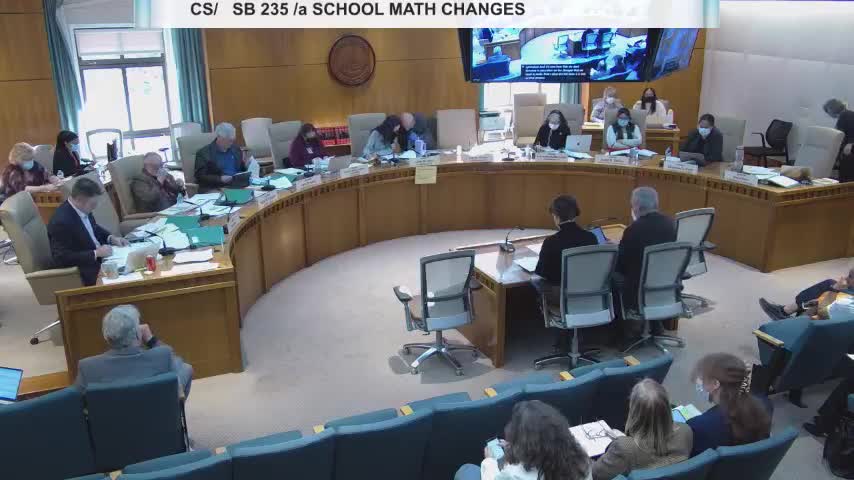Committee forwards bill to screen and boost early math intervention, with questions on data and implementation

Summary
Senate Bill 235 would create a statewide math instructional leadership framework, require school PD plans, and mandate early numeracy screening and targeted intervention plans; the committee gave the bill a due‑pass recommendation after extensive questioning.
Senate Bill 235 instructs the Public Education Department (PED) to develop and monitor a statewide mathematics instructional leadership framework, require districts and charters to adopt math professional‑learning plans and to use department‑approved early numeracy screeners before the end of second grade. The committee moved the bill forward with a due‑pass recommendation.
Nut graf: The measure aims to replicate the state’s multi‑year focus on reading (the “science of reading”) by bringing similar structure, screening and professional development to early mathematics instruction. PED and math education stakeholders testified that early numeracy screeners, teacher coaching and family engagement are central to improving math outcomes.
Support and specifics PED staff and the Math and Science Advisory Council told the committee the bill would support teacher content knowledge, require PD plans at school/district level, and establish early numeric screeners and progress monitoring to identify students who need targeted interventions. The bill also tasks PED’s math bureau with drafting an instructional leadership framework and working with LESC to evaluate rollout and results.
Concerns and data questions Multiple senators asked for clear, measurable student‑achievement goals and for disaggregated data by subgroup (English‑language learners, Native students, low income, special education). PED staff described pilot professional‑development work involving roughly 400 teachers; members asked when student achievement improvements could be measured and whether the pilot produced verifiable cohort outcomes. PED said summative results will appear as cohorts take statewide assessments (third grade and later) and that professional‑development pilots showed positive classroom‑level changes but that statewide measurement will take longer.
Action The committee adopted the bill with a due‑pass recommendation; committee members asked PED to develop measurable targets and disaggregated reporting for later oversight.

